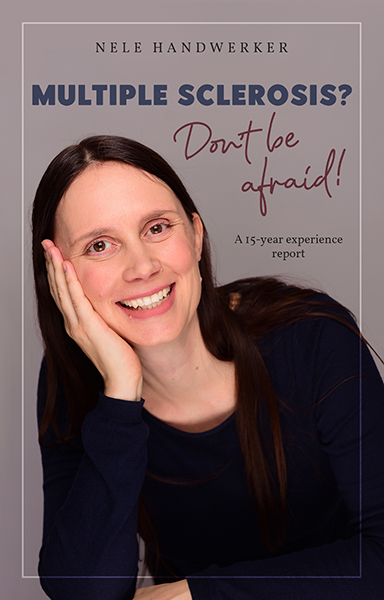This time I talk to Prof. Dr. Patrick Küry about whether we can treat neurodegeneration in multiple sclerosis by modulating HERV-W?
Multiple sclerosis is driven by two disease-causing aspects – acute inflammatory activity, which is now well treatable, and neurodegeneration, which continues to pose major challenges to researchers and physicians. Finding ways to effectively treat neurodegeneration could finally help people in the progressive course, whether PPMS or SPMS. And since neurodegeneration presumably starts in the prodromal phase, i.e., with the onset of pathogenic processes, all MS patients would benefit. But what is HERV-W and how can it be influenced to prevent neurodegeneration? That’s what I talk about in an interview with Prof. Küry.
Klicken Sie auf den unteren Button, um den Podcast zu laden.
Table of Contents
Introduction – Who is Prof. Dr. Patrick Küry?
Molecular and cellular biologist, Swiss origin, PhD in Switzerland, postdoctoral education in UK on developmental neurobiology, moved to Düsseldorf, Germany for cellular studies on regeneration of the nervous system.
Prof. for Neuroregeneration in Düsseldorf, working in a clinical environment, connecting basic science with clinical applications, research team consisting of basic scientists and medical scientists.
Trained as biologist, I love zoology, being in the field, in the nature, in the desert…
Personal motivation for your career choice?
The whole subject of brain cells interacting with each other in physiology and pathology is of great interest for me. I started early working on glial cells and over the years I realized and appreciated their roles in pathological situation such as MS.
The subject of endogenous retroviruses is rather new, not well understood and very fascinating. These are highly uncommon entities of which we constantly learn more about.
Neurodegeneration in multiple sclerosis
What is neurodegeneration in MS?
Neurodegeneration in multiple sclerosis describes the loss of nerve tissue. It is irreversible, happens due to many different processes, and the mechanisms are intrinsic or extrinsic.
When does it happen and what are the outcomes of it?
In MS neurodegeneration is probably actove right from the beginning as a cryptic (hidden) aspect of the autoimmunity process that is dominant. Later on during the progression neurodegeneration becomes the dominant spect of the disease.

How much is this process of neurodegeneration understood and is it possible to slow it down or even stop it as of today?
It is not much understood yet. It seems that many different cells contribute to this process including immune cells and glia cells. So far, no means of (positive) modulation are known and established. There are parallels to other diseases like Alzheimer’s or Parkinson’s disease, where microglial and astroglial influences/roles have been recognized earlier.
Who would benefit most if neurodegeneration could be treated effectively?
Perhaps all neurological diseases, since most, if not all, have neurodegeneration as a primary or secondary process. Currently, we still face some questions: are there common aspects in all diseases, conversion points? Notable differences?
Role of HERV-W in multiple sclerosis
What is the human endogenous retrovirus type W, for short HERV-W, and what does it do in our body?
So far, no physiological function of HERV-W is known. But it is part of the 8% viral genetic origin of our genome. The safe action profile of the neutralizing antibody temelimab argues against a physiological function.
What did you find out about the mechanism of HERV-W when it comes to neurodegeneration in MS and which possible treatment options does it offer?
We could demonstrate a negative impact on regeneration and myelin repair (hence on oligodendroglial cells) and a strong impact on neurodegeneration in that it fosters the generation of neurotoxic microglia and astroglia.
Are there also positive effects of HERV-W on our organism, which should in no way be stopped or slowed down?
Not that we know of.
To what extent have treatment options been investigated in clinical trials and are there already promising candidates to prevent neurodegeneration in the future?
A neutralizing antibody called Temelimab has already been developed and produced. This antibody binds to the „toxic“ envelope protein of HERV-W. The discoverer of HERV-W is Dr. Hervé Perron and the company GeNeuro. There are already promising phase 2 clinical trials. The question is whether they can continue and to what extent are they accepted and supported by society?
Future outlook to stop neurodegeneration in MS
What are the next steps toward effective prevention of neurodegeneration in MS and what new questions have emerged from your research?
- How to follow and study different toxic glial cell populations in patients?
- How to modulate such cells in patients ? (You can dive into that topic more in detail in the following interview: Research on myelin repair. Interview with Dr. Markley Silva Oliveira on the effect of corticosteroid medrysone)
- Biomarkers related to HERV-W and its activities, roles?
- Treatment of patients, when, how, how often, how long?
- Activation of HERV-W in other pathologies apart from MS and Covid19?
- Combination with other DMTs?
What is a realistic time horizon to take the next step forward in research and treatment of neurodegeneration in MS?
Maybe in a few years. It is very difficult to say, because the timetable and pace also depend on the acceptance of the HERV-W concept, support and finances.
How do you verify that neurodegeneration in MS patients can be stopped by modulating HERV-W?
This requires good, reliable biomarkers to measure HERV-W envelope protein in patients using serum or CSF.
Farewell
How and where can interested people follow your research activities?
I find this research on HERV-W extremely exciting, especially since it seems so far that there are no or few side effects to be expected. And I would be so very happy if there are finally first breakthroughs in the treatment of neurodegeneration and thus the progressive processes of MS. So that people with PPMS and SPMS have more than symptomatic therapy options available. I am interested in your opinion on this. Feel free to contact me and let me know if you would like me to shed more light on the subject.
See you soon and try to make the best out of your life,
Nele
For more information and positive thoughts, subscribe to my newsletter for free.
Click here for an overview of all podcast episodes published so far.

And at many more places.
* This text contains affiliate links. This means that I get a small compensation if you buy the product recommended by me through the link. For you nothing changes in the price of the product. And it helps me to pay for the blog and to write new posts.










